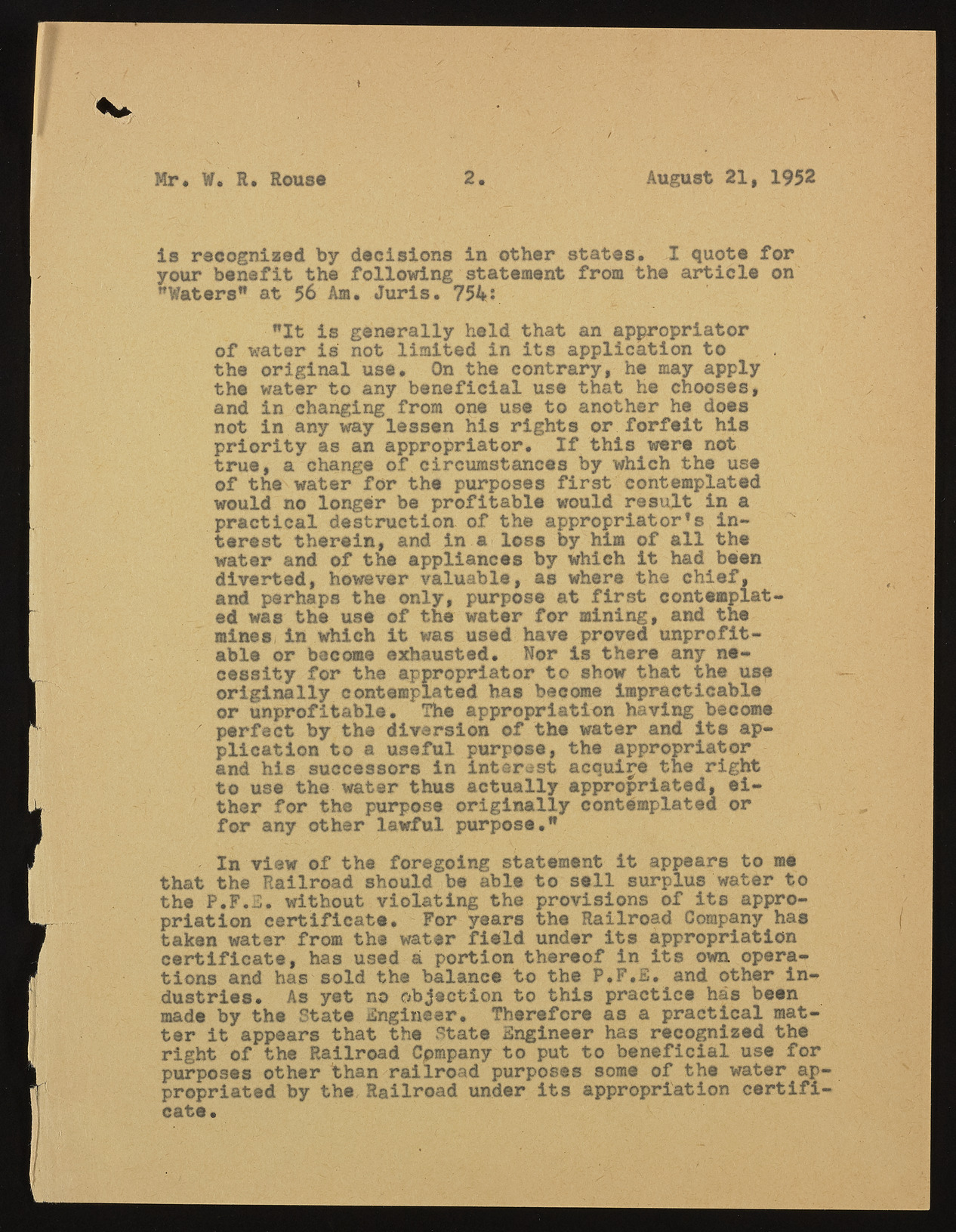Copyright & Fair-use Agreement
UNLV Special Collections provides copies of materials to facilitate private study, scholarship, or research. Material not in the public domain may be used according to fair use of copyrighted materials as defined by copyright law. Please cite us.
Please note that UNLV may not own the copyright to these materials and cannot provide permission to publish or distribute materials when UNLV is not the copyright holder. The user is solely responsible for determining the copyright status of materials and obtaining permission to use material from the copyright holder and for determining whether any permissions relating to any other rights are necessary for the intended use, and for obtaining all required permissions beyond that allowed by fair use.
Read more about our reproduction and use policy.
I agree.Information
Digital ID
Permalink
Details
More Info
Rights
Digital Provenance
Publisher
Transcription
Mr* W* R, Roust 2. August 21, 1952 is recognized by decisions in other states. I quote for your benefit the following statement from the article on "Waters” at 56 Am. Juris. 754 v "It is generally held that an appropriator of water is not limited in its application to the original use. On the contrary, he may apply the water to any beneficial use that he chooses, and in changing from one use to another he does not in any way lessen his rights or forfeit his priority as an appropriator. If this were not true, a change of circumstances by which the use of the water for the purposes first contemplated would no longer be profitable would result in a practical destruction of the appropriator^ interest therein, and in a loss by him of all the water and of the appliances by which it had beien diverted, however valuable, as where the chief, and perhaps the only, purpose at first contemplated was the use of the water for mining, and the mines in which it was used have proved unprofitable or become exhausted. Nor is there any necessity for the appropriator to show that the use originally contemplated has become impracticable or unprofitable. The appropriation having become perfect by the diversion of the water and its application to a useful purpose, the appropriator and his successors in interest acquire the right to use the water thus actually appropriated, either for the purpose originally contemplated or for any other lawful purpose.” In view of the foregoing statement it appears to me that the Railroad should be able to sell surplus water to the P.F.S. without violating the provisions of its appropriation certificate. For years the Railroad Company has taken water from the water field under its appropriation certificate, has used a portion thereof in its own operations and has sold the balance to the P.F.S. and other industries. As yet no objection to this practice has been made by the State Sngineer. Therefore as a practical matter it appears that the State Sngineer has recognized the right of the Railroad Company to put to beneficial use for purposes other than railroad purposes some of the water appropriated by the Railroad under its appropriation certifi-

